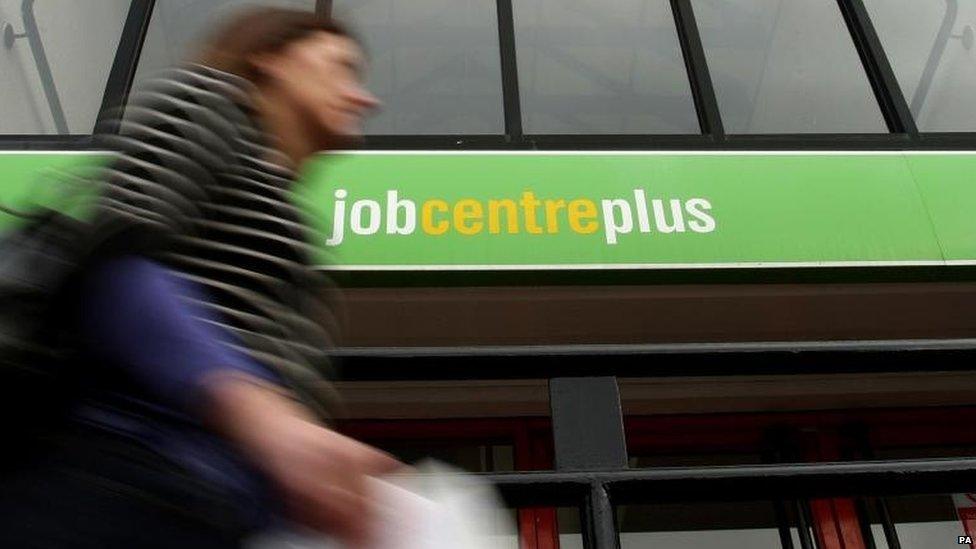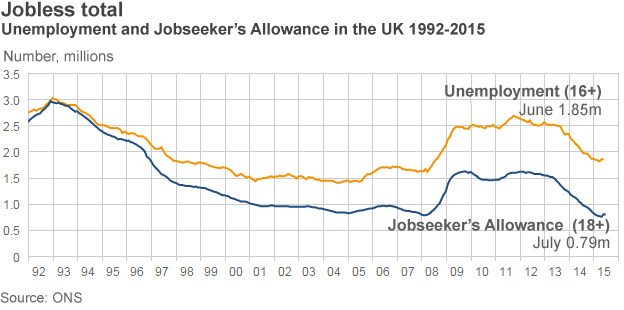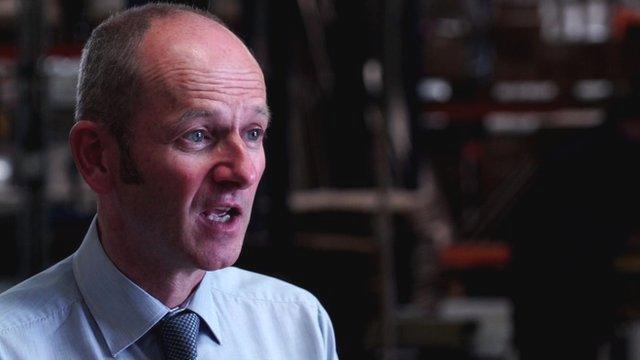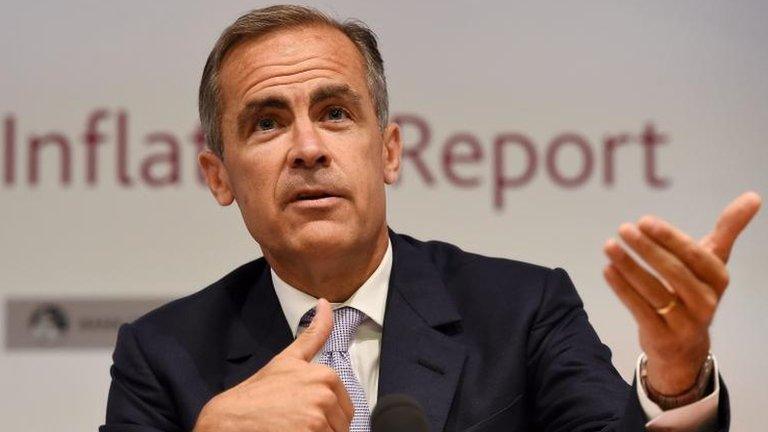UK jobless total edges up by 25,000
- Published
- comments

UK unemployment ticked up to 1.85 million in the April to June period, a rise of 25,000 on the previous quarter.
It is the first time in two years that there have been two consecutive rises in the number of people out of work.
But over the last 12 months employment levels are still markedly higher with 354,000 more people in work than a year earlier.
There has also been a 12% rise in the number of EU nationals who moved to the UK to work over the last year.
However, The Office for National Statistics (ONS) figures, external also indicated that earnings growth is slowing.
Earnings including bonuses rose 2.4% from a year ago, compared with 3.2% growth in the March to May period.
Excluding bonuses, pay was up 2.8% in the April to June period, unchanged from the previous figure.
ONS statistician David Freeman said: "This is now the second consecutive time we've reported fewer people in work on the quarter.
"While it's too early to conclude that the jobs market is levelling off, these figures certainly strengthen that possibility. Growth in pay, however, remains solid."
EU nationals
The number of EU nationals who moved to the UK to work increased by 250,000 on the same period last year, raising the figure to 1.98 million.
Non-EU nationals working in the UK was little changed at 1.2 million.
The ONS figures showed there were 31.03 million people in work during the quarter, down 63,000 from the January to March period but up 354,000 from a year ago.
The employment rate - the proportion of people aged 16 to 64 in work - was 73.4%, up from 72.8% a year ago.
The unemployment rate in the UK was highest in the North East (8.1%) of England and lowest in the South West (4.4%).
The youth unemployment rate rose marginally to 16% compared with 15.9% in the January to March period, but was down from 16.9% a year earlier.

Some 22.76 million people were in full-time work, the ONS said, up 352,000 from a year ago. The number of part-time workers was 8.27 million, little changed from a year earlier.
John Hawksworth, the PwC's chief economist, said even though employment has fallen back from the previous quarter, regular pay and productivity were growing.
"Overall the picture is one of a continuing economic recovery, led by private sector services. But the balance of growth between jobs and productivity seems to be shifting, which could be good news if it makes the upturn more sustainable."
Pound falls
While the growth in earnings still remains well above the rate of inflation, the weaker-than-expected pay figure - together with the slight increase in unemployment - pushed the value of the pound down.
Wage growth is one factor the Bank of England has been keeping a close eye on as it considers when to increase UK interest rates.
Chris Williamson, chief economist at Markit said "doves" on the Monetary Policy Committee may see the labour market data as confirmation that the economy has started to slow, but he put it down to skill shortages.
"Some of the weakening in the employment trend is simply due to companies being unable to find suitable staff as skill shortages become increasingly prevalent.
"Recruitment agencies continue to report a marked worsening of staff availability. Note also that the official data showed job vacancies rising in June to one of the highest on record, which is hardly a sign of weakening demand for staff."
The ONS said there were 735,000 job vacancies in the May to July period, which was little changed from the previous three months but 69,000 more than a year earlier.
One businessman says that the new minimum wage is a barrier to further recruitment
Work and Pensions Secretary Iain Duncan Smith said: "Thanks to our long term economic plan we have already seen two million more people in jobs since 2010.
"On top of that, today's figures show job vacancies at a near record high - evidence of the continued confidence of British businesses, and potential for further growth in the UK economy."
Stephen Timms, Labour's acting shadow work and pensions secretary, said: "The rise in unemployment for a second month in a row is worrying and shows we cannot afford to be complacent about the recovery.
"With productivity stagnating, David Cameron and George Osborne must take bolder action to raise jobseekers' skill levels to get more back into work and help build the high-skilled workforce Britain needs."
The unemployment figures are based on the Labour Force Survey, in which the ONS speaks to 60,000 households once a quarter, making it the country's biggest household survey.
- Published12 August 2015

- Published12 August 2015

- Published7 August 2015

- Published6 August 2015

- Published6 August 2015
